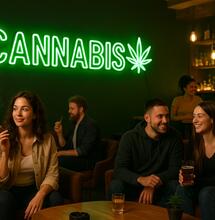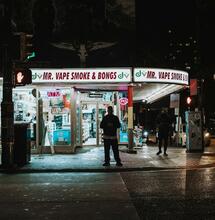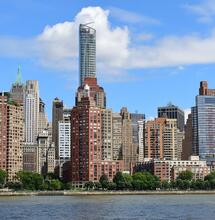New York Opt-Out Tracking

New Year's eve marked the deadline until when New York municipalities had to decide whether they would allow cannabis businesses to operate in their area or opt-out of the option. A significant number of municipalities will not permit business to commence immediately. Still, most New Yorkers will soon be able to supply a stash from legal shops.
Hundreds of New York municipalities will permit pot businesses as the opt-out deadline passed on New Year's eve. The Rockefeller institute even set up a marijuana opt-out tracker, which has counted 674 dispensary opt-outs and 771 consumption site opts-outs as of Wednesday (Jan 5).
However, as it says on the tracker page, the "dashboard is updated regularly [and] it does not represent real-time, official information on municipalities' opt-out decisions."
Not all municipalities engaged actively in the process to opt-out, which defaults to an indefinite opt-in. Local lawmakers in these municipalities will probably take more time to craft rules and regulations before opening to business.
When a municipality chooses to delay allowing cannabis businesses from opening, it doesn't mean they have a stance against marijuana legalization, however. Opt-outs are common practice in new legal states; most recently in New Jersey, where most cities — or more than 70 percent of municipalities — initially opted out to permit cannabis businesses from operating in their area.
A spokesperson from the Rockefeller Insitute said NY municipalities frequently cited the lack of state guidelines when they chose to opt out.
The opt-out option refers to dispensaries and social consumption sites, however, other cannabis businesses such as cultivators and delivery services can operate normally.
While New York prepares to launch the first legal marijuana shops, adults 21 and above are already permitted to possess and publicly consume pot.
State legislators are continually upgrading the legalization policy; the latest amending bills filed refer to members of the LGBTQ community and eligibility criteria for them to qualify as social equity applicants under the state's marijuana law.







